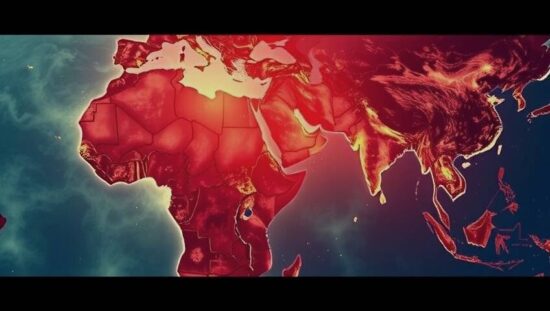The World Hunger Relief has called for increased willingness to negotiate to solve international conflicts by 2025, warning that problems will worsen due to cuts in aid. “It requires much greater efforts and political will to resolve conflicts through negotiations on multiple levels” said the World Hunger Relief’s Secretary General, Mathias Mogge, to the Redaktionsnetzwerk Deutschland (Thursday edition).
“Humanitarian aid funding should not be reduced in the face of growing need and must be made more flexible” Mogge said. It is necessary, for instance, to quickly generate long-term support from ad-hoc aid and to ensure the safe access of helpers to those affected.
The central conflict hotspots for 2025 are the Sudan, the Middle East, and Ukraine. These regions will require “special attention” next year, the Secretary General of the relief organization said.
In the Sudan, the sheer scale of the crisis is shocking. “Almost two years of civil war have caused the world’s largest refugee crisis” Mogge said. Eleven million people are on the run, around 26 million people are hungry, and a quarter of a million people are directly threatened by starvation.
The Ukrainian population continues to suffer from unpredictable Russian attacks. In addition to immediate aid such as repairing destroyed houses or distributing heating materials in winter, psychological help is also needed.
In the Middle East, the situation is developing very dynamically, and humanitarian aid must be constantly adapted. In Gaza, the lack of access is still a “real problem for helpers.” Yemen, after ten years of a largely forgotten civil war, takes the second-to-last place in the current World Hunger Index. In Syria, returnees may need support after the fall of President Bashar al-Assad’s regime.
The UN World Food Programme (WFP) called for solidarity with war and crisis victims. “The greatest challenge in 2025 will be to preserve humanity, which is somewhat lost in many crises” said the Director of WFP Germany, Martin Frick, to the RND.
Conflicts will become more intense and are being fought without respect for international rules. “At the same time, people here and elsewhere are tired and overwhelmed by the many global crises. But solidarity with people in need is a social consensus that should not be broken by debates about scarce funds and economic development.” Frick also named the Ukraine, the Middle East, and the Sudan as central conflict hotspots.





